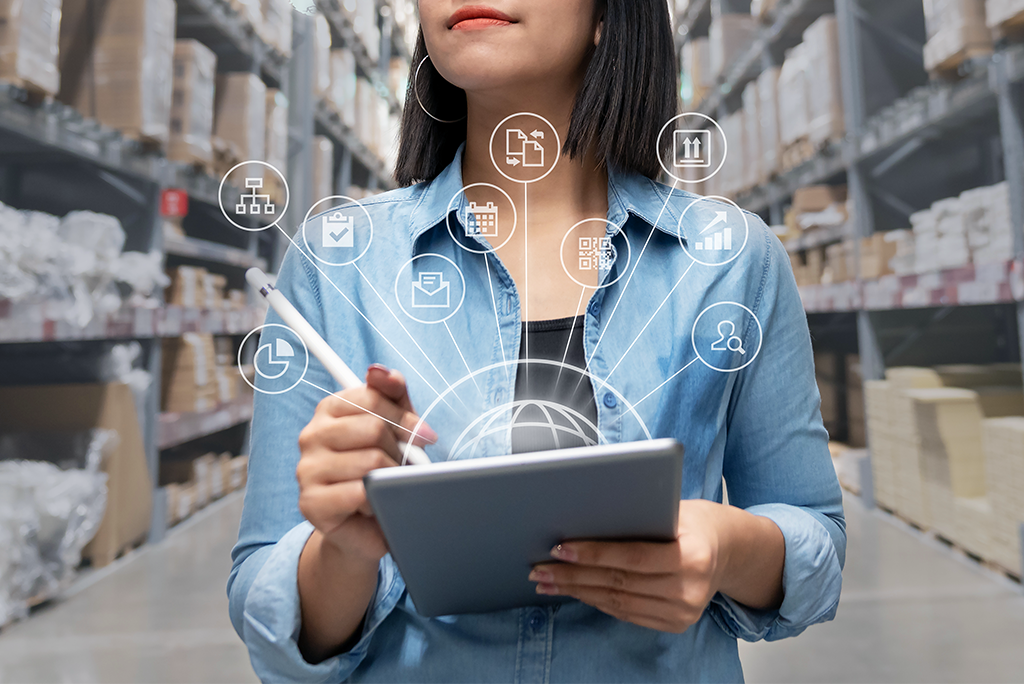
The COVID-19 pandemic has triggered a growing demand for the supply of medicine and medical supplies. At the same time, the pandemic has created major disruptions in the global supply chain, as more and more people are shifting their buying habits and ordering goods through online delivery. The disruption is calling attention to the greater need for connectivity and data transfer in supply chains. In addition to spurring the development of blockchain-enabled apps to track and curb the spread of the virus and to help the public follow social distancing guidelines, the pandemic is also driving opportunities for blockchain technology to solve the supply chain problem. However, integrating blockchain into the supply chain will come with major challenges.
To help solve the problem, the World Economic Forum, working together with the global blockchain community, recently announced the creation of the Redesigning Trust: Blockchain Deployment Toolkit, which will guide individuals and organizations through the process of integrating blockchain solutions into their supply chains.
“The aim of the toolkit is to support decision-makers in effectively deploying blockchain technology in their respective entities,” Nadia Hewett, project leader for Blockchain and Digital Currency at the World Economic Forum, said.
How Blockchain Is Improving the Health Care Supply Chain
As the pandemic roils hospitals and health care agencies, these organizations have struggled to access desperately needed personal protective equipment (PPE) and medical supplies. To combat the problem, IBM recently released a blockchain-enabled network called Rapid Supplier Connect that will assist health care organizations and agencies access PPE and other medical supplies during pandemics. While many businesses that aren’t part of the standard procurement process—such as clothing manufacturers and distilleries— have offered to manufacture much needed supplies, it’s difficult for health care organizations to purchase them at scale. They need assistance with both identifying and verifying the production abilities.
Using blockchain technology, Rapid Supplier Connect creates a super efficient supplier on-boarding process that includes validation with inventory data available almost immediately. Through this streamlined network, PPE suppliers can use portable online IDs, receive user feedback, and post and control the availability of inventory.
“Northwell Health has had adequate supplies to protect patients and our staff during the increase in New York COVID-19 patient cases,” Phyllis McCready, Vice President and Chief Procurement Officer at Northwell Health, a health care provider that joined the network, told Health Care IT News. “It is through creating our own GPOs and supply chain, and joining forces with non-traditional suppliers that we have maintained an adequate stockpile of PPE and other equipment and supplies, so we are pleased to join IBM Rapid Supplier Connect.”
How Blockchain Can Streamline the Food Supply Chain
Experts are also calling for blockchain to be used to improve food supply chains, which have also been disrupted by the pandemic as thousands of meatpacking workers fall sick. Given its tracing capabilities, blockchain technology would be able to document every element of the food production process, starting with the production of the food’s ingredients. This would help supply chain developers know where to make key changes in the supply chain in order to protect workers. Developers can make more informed decisions on how to reconfigure parts of the supply chain in order to avoid reopening factories in higher risk geographic areas.
“As we enter the post-COVID-19 world of the 21st century, our call to action is to renovate our food supply chains so that they readily absorb the effects of the next big challenge,” writes Beth Daley in The Conversation.
Understanding Enterprise Blockchain
In addition to global supply chains, what industries can benefit from blockchain technology? Enterprise Blockchain for Healthcare, IoT, Energy, and Supply Chain is a five-course program from IEEE. Developed by leading experts in blockchain technology, this advanced program provides business use cases across key industries and sectors. It’s ideal for managers, professional engineers, and business leaders.
Connect with an IEEE Content Specialist today to learn more about this program and how to get access to it for your organization.
Interested in learning more for yourself? Visit the IEEE Learning Network.
Resources
Anderson, Lynne. (31 May 2020). Supply chain innovation can reduce coronavirus food shortages. The Conversation.
AlMuhairi, Mariam Obaid. (8 May 2020). Why COVID-19 makes a compelling case for the wider integration of blockchain. World Economic Forum.
Millard, Mike. (1 May 2020). IBM launches blockchain network to bolster medical supply chain during COVID-19. Healthcare IT News.


Great article. Blockchain technology is evolving everywhere and the supply chain sector is not exception anymore.
The struggle of the pandemic roils hospitals and health care agencies is appreciatable.